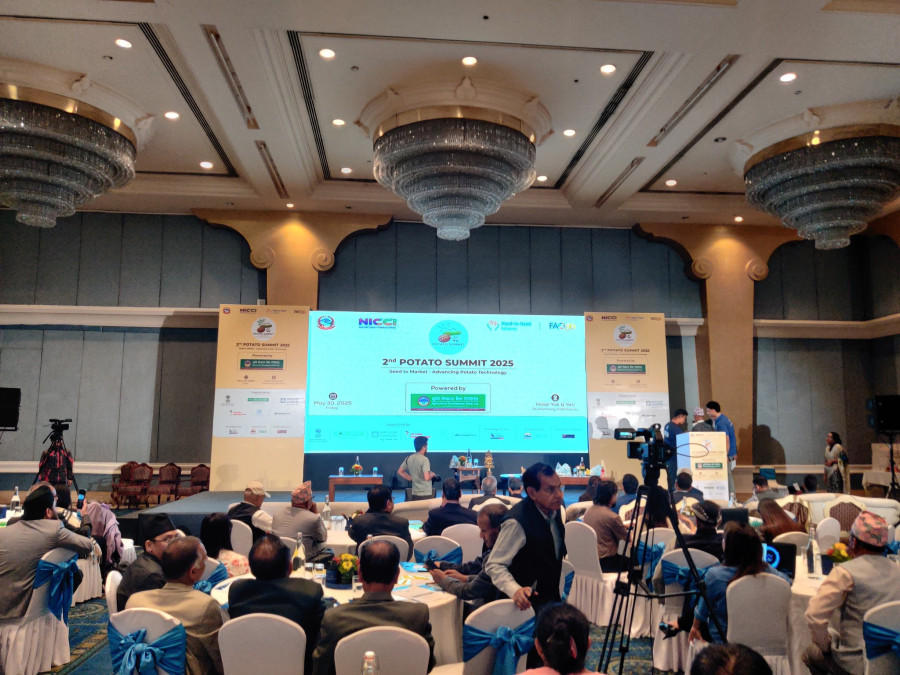National
Nepal hosts second potato summit to boost growth
The summit, organised by the Nepal-India Chamber of Commerce and Industry, explored strategies for optimising the potato value chain, improving seed quality, and engaging the private sector to strengthen Nepal's potato industry.
Post Report
The second edition of Potato Summit 2025 kicked off in Kathmandu on Friday with an aim to prepare strategies for enhancing Nepal's potato industry by optimising the seed value chain, market development, potato processing opportunities, and engaging the private sector.
Organised by the Nepal-India Chamber of Commerce and Industry in collaboration with the Ministry of Agriculture and Livestock Development and the Food and Agriculture Organization (FAO), the summit discussed the adoption of improved seed varieties, the crucial role of cold storage in reducing post-harvest losses, and the need for targeted financing to strengthen the potato value chain.
Agriculture Minister Ram Nath Adhikari inaugurated the summit and reaffirmed the government's commitment to supporting the potato sector through policy reforms and incentives for investment in processing technologies.
“We have 16 Potato Zones and two Super Zones to promote productivity and improve the livelihoods of local farmers. However, there is increasing demand from potato farmers for more potato zones,” Adhikari stated.
“Given the advancements in potato seed technology, we need to focus on identifying and developing high-quality seeds that have commercial value. The government is concentrating on this,” Adhikari added.
Ken Shimizu, the FAO country representative for Bhutan and Nepal, highlighted the importance of understanding market trends and consumer preferences.
“The Hand-in-Hand Initiative has identified Highland Potato as a priority commodity, aiming to catalyse investment and targeted interventions for inclusive rural development,” he said. “This initiative supports the Government of Nepal's efforts to enhance food and nutrition security, promote sustainability, bolster resilience, and foster rural development.”
The summit also emphasised the importance of promoting crop insurance as a risk-reduction strategy for potato farmers, particularly in mitigating losses due to pests, diseases, and climatic events.
Moreover, the role of financial institutions in supporting the potato sector through loans and investments in infrastructure was highlighted, with a focus on scalable agribusiness models.
Strategic investments in processing, storage, and marketing were also discussed to enhance the competitiveness of Nepal's potato sector.




 9.89°C Kathmandu
9.89°C Kathmandu













